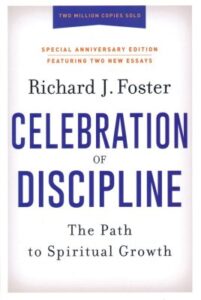Nicole Zasowski, author and marriage and family therapist challenges us to let go of the habit of practicing disappointment and fully embrace joy as we practice the spiritual discipline of celebration. Does the fear that disappointment or tragedy is ahead keep you from fully celebrating the gifts you have right now? This conversation will help you overcome the fears that keep you from looking toward the future with joy and let go of the lies you’ve believed about happiness. Learn to embrace celebration as a part of spiritual growth and approach life with an expectant heart and courage to trust God’s good gifts. While it’s true that God’s purpose for us is worked out in our struggles, may you also be encouraged that it is also worked out in our dreams and our delighted joy. Visit wonderfullymade.org for show notes and links.
—
Listen to the podcast here:
Cultivating Joy Through Celebration — With Nicole Zasowski
We have a wonderful woman joining us. She is a marriage and family therapist and author, Nicole Zasowski. Her book, What If It’s Wonderful? looks at the compelling psychological and spiritual case for the importance of embracing joy and celebration. I do not think there is a single person here who does not want more joy in their lives, especially coming out of the last couple of years that we have been going through and are still finding ourselves in the midst of. This is a perfect topic for this episode. Nicole, we are so glad that you are here.
I am so happy to be here. Thanks for having me.
I have been enjoying your Instagram accounts. This book, What If It’s Wonderful?, that focuses on the spiritual practice of celebrating, you share that you have had a journey of your life that has led you to write this book. I would love as an opening in this episode, you would share of that with us.
I do not think our seasons are ever all joy or all pain. Most of life is a combination of both of those things, but certain seasons lean in one direction or another. I had lived before I wrote this book, a pretty long season that could largely be characterized by change and loss. It is painful. As I looked back on that season, I had this moment, which then became a longer moment into a new journey.
I realized I had thought that the main cost of the pain was the pain itself. That was the case in many ways. It costs me a lot of delight and joy. As I look back on that season, I realized that joy was accompanied by a ton of fear, a fear that the other shoe was going to drop, that celebration always came with a catch, that getting my hopes up would leave me disappointed, and that celebration was an avenue of heartache.
In a poor attempt to protect myself, I relied on pessimism and cynicism as a fancy form of control. I am hypervigilant for everything and anything that could go wrong. When I did receive good news or when I did experience a breakthrough or joy in my everyday life, it was hard for me to receive that and embrace it because I was waiting for it to be taken away.
As you are sharing that, it reminds me of what Brené Brown shares about this self-protective layer that we put on to protect us against disappointment. The irony of it is then we end up living in a state of disappointment and dissatisfaction because we are shielding ourselves from joy in a lot of ways.
Pessimism and cynicism, research is pretty clear. It does not protect us from any disappointment. We are not robots. We are still human beings who are going to have a natural, emotional response to pain. As our eyes are cast down, searching for things that could go wrong, we are protecting ourselves from a lot of delight along the way. That is what made me so sad when one day, I realized I was done missing out on my beautiful God-given life because I was so busy preparing for the worst. You have those moments in your life where you realize, “This is not a dress rehearsal. I get one of these.”
I was so thankful to confront that dynamic in my heart because while it is still a struggle for me, I joke that I take my title, What If It’s Wonderful?, to the face every time I look at my book as accountability. This is a journey I am still on, but it has made all the difference for me. The message in those pages is changing my life.
What was the shift for you? You realize, “This is not a dress rehearsal. This is my life.” What was the mindset shift for you? What happened there?
There was no event or anything monumental that I could recall in terms of my circumstances or a conversation. I had noticed after several months and probably even years of living a different season, not that season was totally void of pain, but I did experience breakthrough and good news in my story. I experienced a ton of delight and joy. I noticed that I was not able to step into it fully. Enough repetition of that made me grieved.
I am done missing my beautiful life because I am busy preparing for something that A) Might not happen and B) We can deal with if it does. With God’s help, relationships, and the work of the Holy Spirit, we can deal with the pain if it comes. I am not protecting myself from anything except delighting in God’s good gifts.
Joy is something you can cultivate. It's a gift to you right now, regardless of what your life might look like at the moment. Click To TweetYou also did research on celebration. Will you share about the research that you did and what you learned about the way that it affects us psychologically?
I got very curious about this whole concept of joy and celebration, particularly the practice of celebration and the power it has in our lives. It is included in the famous book, Celebration of Discipline. One of the disciplines is celebration. Simultaneously to the journey, I described for you, I realized that even as somebody who had grown up in the church my whole life, I had been a Christian my whole life, but it was a faith that have grown and matured over time. I was sad when I realized I did not have a concept of what it looked like to engage with God in my joy. We say that, “All the growth happens in the valley. Do not despise the valley because that is where the learning and growing happens.”
I do not think nothing grows on top of the mountain top. Different things grow on the mountain top. I wanted to understand how joy and celebration can also be an avenue of growth and strengthening in our lives that we are not just coasting during those seasons that feel more delightful, but that we are also growing in our faith.
We are deepening our relationships with our family, friends, and community. We are learning important things. There were several practices that I went into a lot of detail in the last section. The last 1/3 of my book is more practical in nature. There were several practices that became helpful to me. One of them is savoring. The concept of savoring that I love so much is it celebrates the ordinary.
Often, we think celebration is going to be on the far side of a change in circumstances we are hoping to see or the achievement of a goal or the realization of a dream. We want a reason to celebrate, but all of these practices are more empowering because you realize, “Joy is something that I can cultivate. It is a gift to me right now, regardless of what my life might look like in this moment.” What savoring does is it takes our ordinary days and it helps us record, enjoy, and remember and celebrate those moments that our brain would be tempted to discard. Our brain is very efficient. It only likes to hang on to things that it thinks it is going to need.
Feeding your kids breakfast in the morning or holding your newborn or laughing about something ridiculous with your spouse or a friend, these are moments that our brain does not think are important unless we tell our brain that they are important. The way that we do that is we ask our five senses what they are going to remember about that moment, “What am I seeing? What am I tasting? What am I hearing? What am I smelling? What am I feeling?”

Research shows that pessimism and cynicism do not protect us from disappointment.
The bonus is if you struggle with anxiety, which I definitely do, this is a wonderful exercise to also keep you very present. It can be helpful in the midst of anxiety too. It helps us celebrate that moment that our brain would say, “It seems commonplace to me.” It helps us find joy in the life that we are already living. Celebration is less about what we add to our lives and more about not missing what is already there.
I am thinking fast forward to our little girl’s birthday party. It is more of a formal celebration. I am thinking about, “What would it look like to savor that moment? How would that change my experience of that time with the people who are going show up?” Maybe it is just a family meal to do an experiment and test it out and see how that feels. I love that.
Ask your five senses what they are going to remember and what they are experiencing right now. Some might be more obvious than others, but they all help deepen that savoring experience. If I were you with children’s birthday parties, we could have this mentality, “Let us try to get through the next two hours. It is going to be chaotic. It is going to be fun, I am sure, then I can kick my feet up.”
What if we savored that experience? What motivates me to do that is you and I are going to live a lot of beautiful moments in our lives. Hopefully, we will remember a lot of them, but none of them are going to be like this one. No days are going to be just this day. Your daughter is not going to be six again. That motivates me to stop, savor, and celebrate what will be beautiful in the future, but will not be this beautiful.
Will you share one more with us?
Ritual is another beautiful one. We are talking simple and doable here, so that it can be practiced consistently. People do this in the morning, if they have a Sabbath day, a day of rest and play with their families. Sometimes we think, “If I am resting, I am more focused on what I am not doing.” What should I not be doing on that day? Like working to get ahead for the week or doing a big project instead of thinking, “What can I add to that day to make it special?” People do this with meals like cinnamon rolls on Sunday morning or if there is a ritual in the morning, pouring their tea.
Rest, enjoy, and savor the moment. Click To TweetI have a morning routine that is very quick, but it sets my day. The reason the rhythm of it is helpful is that your body and all five of your senses are included in that. Start to anticipate that rest or that celebration. I had friend in graduate school whose family did the same thing every week for their Sabbath. They had fresh bread in the oven. Her mom would open the windows. They lived in California, so it was mild weather and could do that. It would be harder where I live in Connecticut.
She played the same classical music every week. My friend would tell you as soon as she heard that music or as soon as you smelled that bread, it is like her whole body remembered that it was time to rest, enjoy, and savor that moment. Anything you can do rhythmically and regularly is profoundly helpful to us physically and remembering to celebrate.
Do you know what I am noticing about these celebrations and these practices that you are sharing? They are in the everyday available to each one of us. This is not like you need to host a party. These are in the every day, which is encouraging.
For a long time, I was a little bit annoyed that celebration had this discipline component to it because I did not want it to be that way. I did not want it to feel like work. I wanted to have a reason to celebrate, but I realized that is one of the reasons that transitions are so difficult for me. Especially transitions like a new year, I struggled around new years historically for a long time. It is because I would approach a change in a season or a transition and I would think, “I hope I have a reason to celebrate this year or in this season.” The locus of control on that is so powerless to feel like, “My joy is on the other side of a change I can’t control or I hope happens,” rather than making it a practice.
It is empowering and encouraging when we can start to practice these things without anything changing. Sometimes joy jumps up and surprises us and we encounter good news or something that is very natural to celebrate, but I am going to say most of the time, joy is not like that. It is something that we cultivate and practice, which might be hard to hear it first, but I am glad that is your reaction as I talk because it was the same for me as I researched it like, “This is actually good news to us.”

God is all for us celebrating the good gifts He’s given us.
It is because that means that we have agency to cultivate more joy in our lives by the power of the Holy Spirit, which means we can lean all the way into that and not be focused on being afraid that the floor is going to fall out underneath our feet because we have a God who is secure. That relationship can, even in the midst of hard times, give us the sustenance and the strength that we need and awakening our five senses to God’s presence in our lives. Seeking after that and cultivating that will bring us joy. Tell us more, Nicole. I am learning so much. I love this.
Something you shared reminded me that when we are looking at these gifts, these earthly delights that are in our everyday lives, one of my biggest fear was disappointment. I always felt like joy was going to be an avenue of disappointment or celebration. If I celebrate it, then I have that much further to fall if it does not work out or if it changes or if I fail somehow, depending on what I was celebrating. What I realized is that my disappointment is, more often than not, not about the no or the missed opportunity or expectations themselves. It is because I have expected more joy from a gift than it was meant to give. I always say that what sits at the center of my affection will determine the satiation of my joy. Only one person, Jesus, belongs at the center.
Anything else in the wrong spot, a gift that is standing awkwardly in the wrong place, is ultimately going to leave us feeling empty. Even if there is a brief moment of celebration, the color on that will start to fade. The effects of that will start to wane. That is the way it is supposed to be. If we delight in a gift, there is nothing wrong with celebrating the way God is moving in our lives or when he furthers a dream or when we get to experience a breakthrough and something we have prayed for, for a long time. God is not against it. He is all for us, celebrating those good gifts that he has given us. It is that when we expect more from the gift itself that only the giver can give, then that is where the disappointment can come from.
I love it that you also pointed out there that it is not only in gifts that we get like, “I am so excited. I am going to get the house. I am going to buy the first house and do the first thing.” It is also in these life achievements that are even more magnified, “I am going to find the person for me. I am going to get my dream job. I am going to have kids.” Whatever the goal is, when we pin all of our hopes and dreams on that, we can be sure that we will be disappointed because we were not meant to place all of our hopes and dreams on that.
What you are saying is investing the identity and security in those gifts is going to fall flat. They were not meant to tell us who we are and they were not meant to make us feel safe forever and for always. They are meant to be enjoyed and delighted. That, for me, is the line, “Is this something I am enjoying or is this something that I am trying to build my identity on or make me feel safe in this life and secure and comfortable without Christ?” It is not going to work.
Toxic positivity dismisses pain, but joy trusts God's promises in pain. Click To TweetWhat would you say to the person reading, who is feeling disappointed in their life right now and joy sounds appealing, but feels pretty far off?
There are several misconceptions I had about the joy that made it feel like I was disqualified from that when I was in a similar season and still experience many days that feel like that. The difference between joy and toxic positivity, toxic positivity dismisses pain. Joy trusts God’s promises in pain. There were seasons I did not feel those promises.
It did not make me emotionally feel any different, but to be able to know them as true, and act on them as true in the midst of honoring your pain and the very hard things that you are going through, you do not have to exchange one for the other. You can honor your pain, feel your pain, be honest about your pain, and invite God into the feelings you have instead of trying to have the perfect feelings for God.
It would be a tragedy to me if someone thought this book was somehow about performance or living your best life or acting like you feel something different than you do. That is not helpful and in most cases, can be harmful. The second thing I would say, and we see evidence of this in scripture, God’s faithfulness to you is not dependent on your faith.
If you feel like, “This sounds good, I want to be there.” Maybe somewhere deep down, I know that is true, but there is not an ounce of me that feels any hope or joy. A question I get a lot is, “Do I have to demonstrate an expectant heart or a certain level of hope before God is willing to intervene in my circumstances?” No. God’s faithfulness to you is not dependent on your faith.
His goodness is not a function of your goodness. You would be right where you are. I encourage you to practice these things because they do change the way we see and can celebrate a life with Christ. A beautiful life is any life lived with Christ. That is the criteria. It is a life where you are lived with Christ. My hope with this book is that there are some practical things, some spiritual truth, and neuroscience research that can be helpful as you move through your seasons of joy and pain.

A verse came to mind as you were sharing. That is, “Be transformed by the renewing of your mind.” These practices that you are sharing and there are more that you share in your book. I wish we had even more time to dive into some more of them, but awakening our five senses to enjoying and experiencing the moment and the ritual of these simple things can bring a lot of enjoyment in our lives and in our family’s lives. I know for myself that sometimes I can get in my head and I will realize I am repeating this negative statement to myself. I realized that it had been a hard season. There have been a lot of things like moving and getting COVID.
It is okay. God is good. There is still joy in this season. I realized that the statement that I was saying to myself was, “What is wrong with you? What is wrong with me?” God stopped me and was like, “Stop it. There is nothing wrong with you. Stop saying that.” I feel like this part that is so important in this practice of celebrating to fill our minds with the truth, whether that is music or scripture meditations. It changes our experience of what we are going through and can take it pretty quickly from this hard time to, “Life is not black and white. There is joy and pain. I am going to enjoy all the joy that there is to be had and not continue unnecessarily to be in a ‘hard season.’” Not that the work ends, but so we are not prolonging the pain.
We have to practice the peace and joy that we long to feel. This is hard. I do not love this about the brain. I tell my clients this all the time. I, myself, am frustrated by this. The brain prefers what it knows. What we hear most often and the loudest voice is the voice inside our own heads. Not only is the message we give is important, but often we want to feel the truth before we live it out. The reality is we have to practice the truth to bring ourselves to a new place of feeling. That is not denying the pain. That is acting on what we know so that we can practice that peace and joy that we long to feel.
We have to practice the truth to bring ourselves to a new place to feeling. Click To TweetNicole, this has been such an amazingly rich time. Thank you for all your wisdom and for sharing your research with us. I am excited for all the people who are going to benefit from what you are sharing with the world. I have one last question for you. We have some younger readers. We have a good variety of different ages that reads this. The question is, if you are going to share some encouragement with your younger self, how old would you be? What would you say to her?
I would be 22, graduating from college. I so badly would want her to know, do not expect more from the gift than it was meant to give. I very much lived like joy was waiting for me at the other side of that accomplishment or the other side of marriage, having a family, or career taking a turn that I wanted it to. I was convinced that each of those things would be the thing that would make me want nothing else. There is so much freedom in understanding that those are good delights and should be celebrated when they happen, but they are not where your identity and safety are going to be found.
That last thing you said, our identity and our safety, those are two things that are somewhat essential to lasting joy. It is showing that we are who we are, that we are loved, and knowing that we are safe. If we know and experience those two things, we can find and experience joy in the midst of so much.
 Those are the two things we need as human beings to not only thrive, but survive. To feel loved and to feel safe, those are our two most primary needs. Joy is a tremendous byproduct when you can find your identity and security and the person that can actually give it to you.
Those are the two things we need as human beings to not only thrive, but survive. To feel loved and to feel safe, those are our two most primary needs. Joy is a tremendous byproduct when you can find your identity and security and the person that can actually give it to you.
Nicole Zasowski and her book, What If It’s Wonderful? comes out in March 2022. You can get it on Amazon. Where else can they find it, Nicole?
On Amazon, but local bookstores can order it for you if they do not have it. Anywhere you like to buy books, you can find it.
What is your Instagram account name?
I highly recommend that you follow Nicole. I do not follow a lot of people, but I am now following you.
I am so glad. Thanks for coming along.
Thanks for being here in this episode, Nicole.
Thanks for having me. This was fun.
Important Links:
- What If It’s Wonderful?
- Celebration of Discipline
- @NicoleZasowski – Instagram
- https://www.NicoleZasowski.com/
-
What If It’s Wonderful?: Release Your Fears, Choose Joy, and Find the Courage to Celebrate
About Nicole Zasowski
 Nicole Zasowski is a licensed marriage and family therapist and author of From Lost to Found: Giving up what you think you want for what will set you free.
Nicole Zasowski is a licensed marriage and family therapist and author of From Lost to Found: Giving up what you think you want for what will set you free.
As an old soul who wears her heart proudly on her sleeve, she enjoys writing and speaking on topics that merge her professional knowledge and personal experience. She lives in Connecticut with her husband and two young boys.




